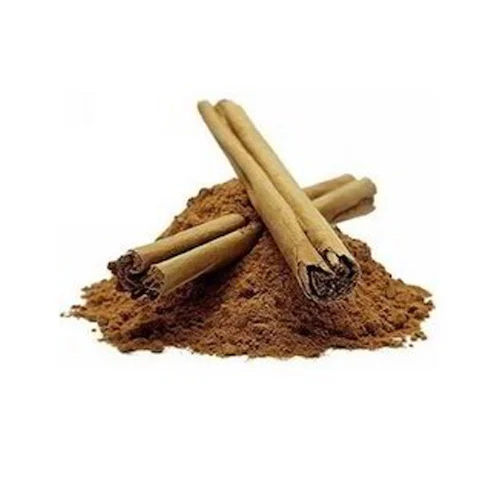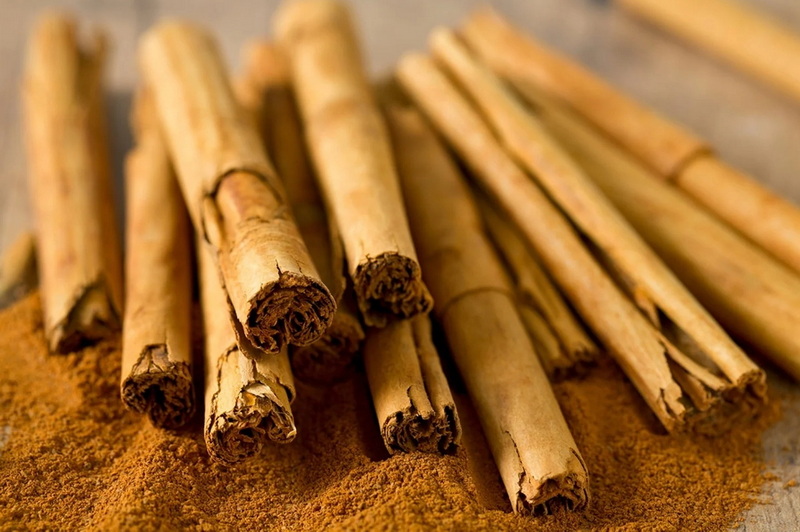Content Menu
● Overview of Cinnamomum Zeylanicum
>> Traditional Uses
● Health Benefits of Cinnamon Bark 5:1 Extract
>> Anti-Microbial Activity
>> Blood Sugar Regulation
>> Anti-Inflammatory Effects
>> Digestive Health
>> Antioxidant Properties
● Preparation and Usage
>> Capsules
>> Powders
>> Herbal Teas
● Safety and Precautions
● Additional Health Benefits
>> Cardiovascular Health
>> Cognitive Function
>> Skin and Hair Care
● Cultural Significance
>> Historical Use
>> Modern Applications
● Conclusion
● FAQs
>> 1. What is the difference between Ceylon and Cassia cinnamon?
>> 2. How does cinnamon bark 5:1 extract help with digestion?
>> 3. Can cinnamon bark extract lower blood sugar levels?
>> 4. Is cinnamon bark 5:1 extract safe during pregnancy?
>> 5. How does cinnamon bark extract support immune function?
● Citations:
Cinnamon bark 5:1 extract from Cinnamomum zeylanicum, commonly known as Ceylon cinnamon, is a concentrated form of cinnamon bark that has been used for centuries in traditional medicine and culinary practices. This extract is derived from the inner bark of the Cinnamomum zeylanicum tree, native to Sri Lanka and parts of India. The "5:1" ratio indicates that the extract is five times more concentrated than the raw material, making it a potent source of cinnamon's active compounds.

Overview of Cinnamomum Zeylanicum
Cinnamomum zeylanicum is an evergreen tree belonging to the Lauraceae family. It is renowned for its aromatic bark, which is harvested, dried, and used as a spice or for medicinal purposes. The bark contains about 0.5-1.0% volatile oil, primarily composed of cinnamaldehyde, responsible for its distinct flavor and aroma.
Traditional Uses
Cinnamon has been used in traditional medicine for various ailments, including respiratory, digestive, and gynaecological issues. It is also valued for its anti-inflammatory, antiseptic, and carminative properties.
Health Benefits of Cinnamon Bark 5:1 Extract
The concentrated extract of cinnamon bark offers several health benefits due to its high concentration of active compounds.
Anti-Microbial Activity
Cinnamon bark extract has demonstrated significant antimicrobial activity, inhibiting the growth of various bacteria and fungi. This property makes it useful for treating infections and promoting oral health.
Blood Sugar Regulation
Cinnamon is known to have a potential effect on lowering blood sugar levels, which can be beneficial for individuals with type 2 diabetes. However, it is crucial to monitor blood sugar levels when using cinnamon extracts.
Anti-Inflammatory Effects
The extract contains compounds that exhibit anti-inflammatory properties, which can help in reducing inflammation and alleviating symptoms associated with conditions like arthritis.
Digestive Health
Cinnamon bark has traditionally been used to alleviate gastrointestinal issues such as diarrhea, gas, and stomach upset. Its carminative properties help in reducing flatulence and improving digestion.
Antioxidant Properties
Cinnamon bark is rich in antioxidants, which play a crucial role in protecting the body from oxidative stress and potentially reducing the risk of chronic diseases like heart disease and cancer.

Preparation and Usage
Cinnamon bark 5:1 extract can be used in various forms, including capsules, powders, or as an ingredient in herbal teas.
Capsules
Capsules are a convenient way to consume the extract, especially for those who prefer a standardized dosage. They are often used to support digestive health and blood sugar regulation.
Powders
Powdered extracts can be added to food or beverages, providing a flavorful and nutritious boost. It is commonly used in baking and cooking.
Herbal Teas
Cinnamon bark can be steeped in hot water to make a soothing tea, which is traditionally used to aid digestion and relieve cold symptoms.
Safety and Precautions
While cinnamon bark is generally safe when consumed in food amounts, higher doses may pose risks. It is important to consult a healthcare provider before using concentrated extracts, especially if you have underlying health conditions or are pregnant/breastfeeding.
Additional Health Benefits
Cardiovascular Health
Cinnamon may help in reducing triglycerides and LDL cholesterol, which are risk factors for heart disease. Its antioxidant properties also contribute to overall cardiovascular health.
Cognitive Function
Some studies suggest that cinnamon may have neuroprotective effects, potentially improving cognitive function and memory. However, more research is needed to confirm these benefits.
Skin and Hair Care
Cinnamon bark extract is sometimes used in skincare products due to its antimicrobial properties, which can help in treating acne and other skin infections. It may also be used in hair care products to improve scalp health.
Cultural Significance
Cinnamon has been a valuable spice throughout history, playing a significant role in ancient trade routes. It was highly prized by ancient civilizations for its flavor, aroma, and medicinal properties.
Historical Use
In ancient Egypt, cinnamon was used in embalming processes and as a form of currency. In ancient Rome, it was used to flavor food and wine, and its value was so high that it was considered a luxury item.
Modern Applications
Today, cinnamon is used not only in cooking but also in perfumes, soaps, and other cosmetic products. Its essential oil is used in aromatherapy for its calming effects.
Conclusion
Cinnamon bark 5:1 extract from Cinnamomum zeylanicum offers a range of health benefits, from antimicrobial and anti-inflammatory effects to digestive support and blood sugar regulation. However, it is essential to use these extracts responsibly and under medical guidance if necessary.

FAQs
1. What is the difference between Ceylon and Cassia cinnamon?
Ceylon cinnamon (Cinnamomum zeylanicum) is considered "true" cinnamon and is native to Sri Lanka. It has a lighter color and a more delicate flavor compared to Cassia cinnamon (Cinnamomum aromaticum), which is more commonly found in grocery stores and has a stronger, more bitter taste.
2. How does cinnamon bark 5:1 extract help with digestion?
Cinnamon bark extract aids digestion by reducing gas, alleviating stomach upset, and stimulating appetite. Its carminative properties help in relieving flatulence and improving overall digestive health.
3. Can cinnamon bark extract lower blood sugar levels?
Yes, cinnamon bark extract may help in lowering blood sugar levels, although its effects are considered mild. It is important for individuals with diabetes to monitor their blood sugar levels closely when using cinnamon extracts.
4. Is cinnamon bark 5:1 extract safe during pregnancy?
Consuming cinnamon bark in food amounts is generally safe during pregnancy. However, using larger amounts or concentrated extracts should be avoided unless advised by a healthcare provider.
5. How does cinnamon bark extract support immune function?
Cinnamon bark extract supports immune function through its antimicrobial properties, which can help in fighting off infections and promoting overall health.
Citations:
[1] https://pubmed.ncbi.nlm.nih.gov/24148965/
[2] https://www.rxlist.com/supplements/cinnamon_bark.htm
[3] https://www.sohu.com/a/846632226_121124322
[4] https://www.florajournal.com/archives/2024/vol12issue2/PartA/9-4-41-431.pdf
[5] https://www.medicalnewstoday.com/articles/318382
[6] https://pmc.ncbi.nlm.nih.gov/articles/PMC3854496/
[7] https://pmc.ncbi.nlm.nih.gov/articles/PMC4003790/
[8] https://www.webmd.com/diet/supplement-guide-cinnamon






























